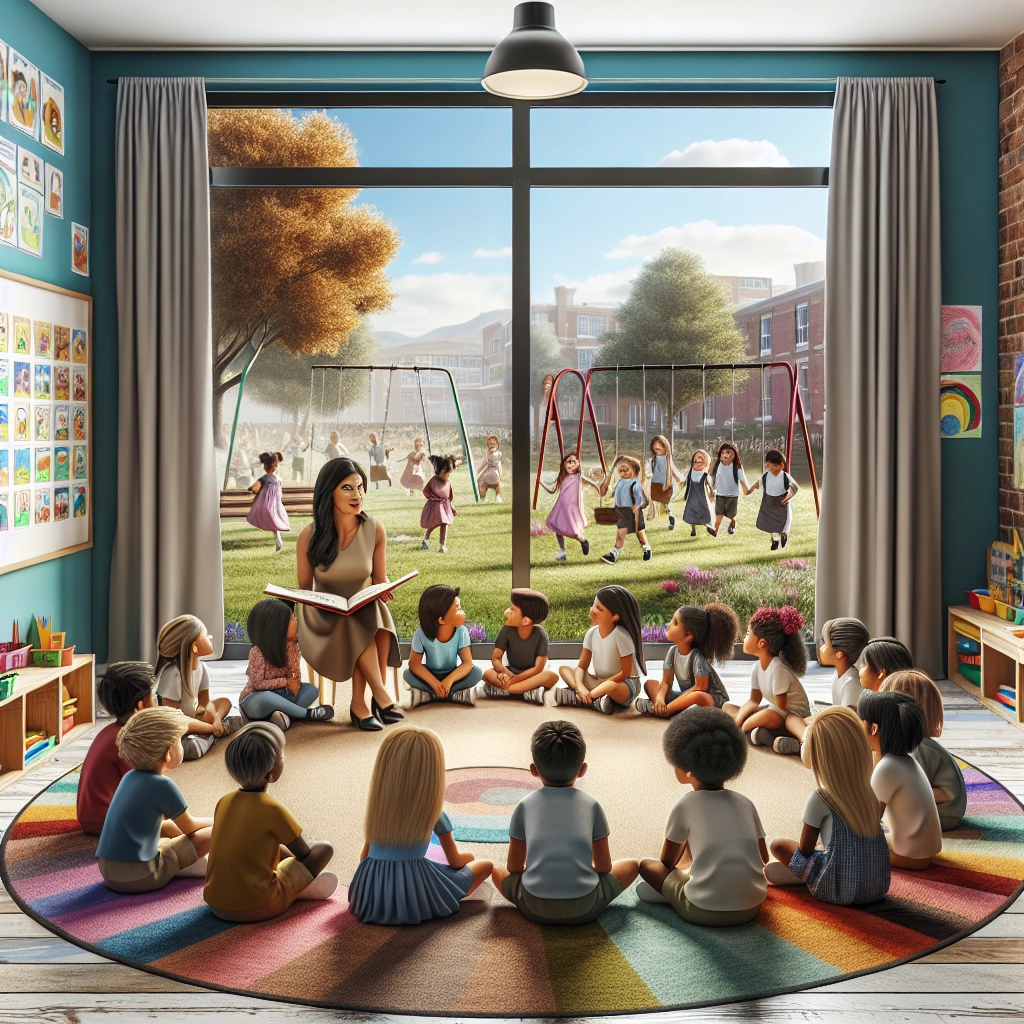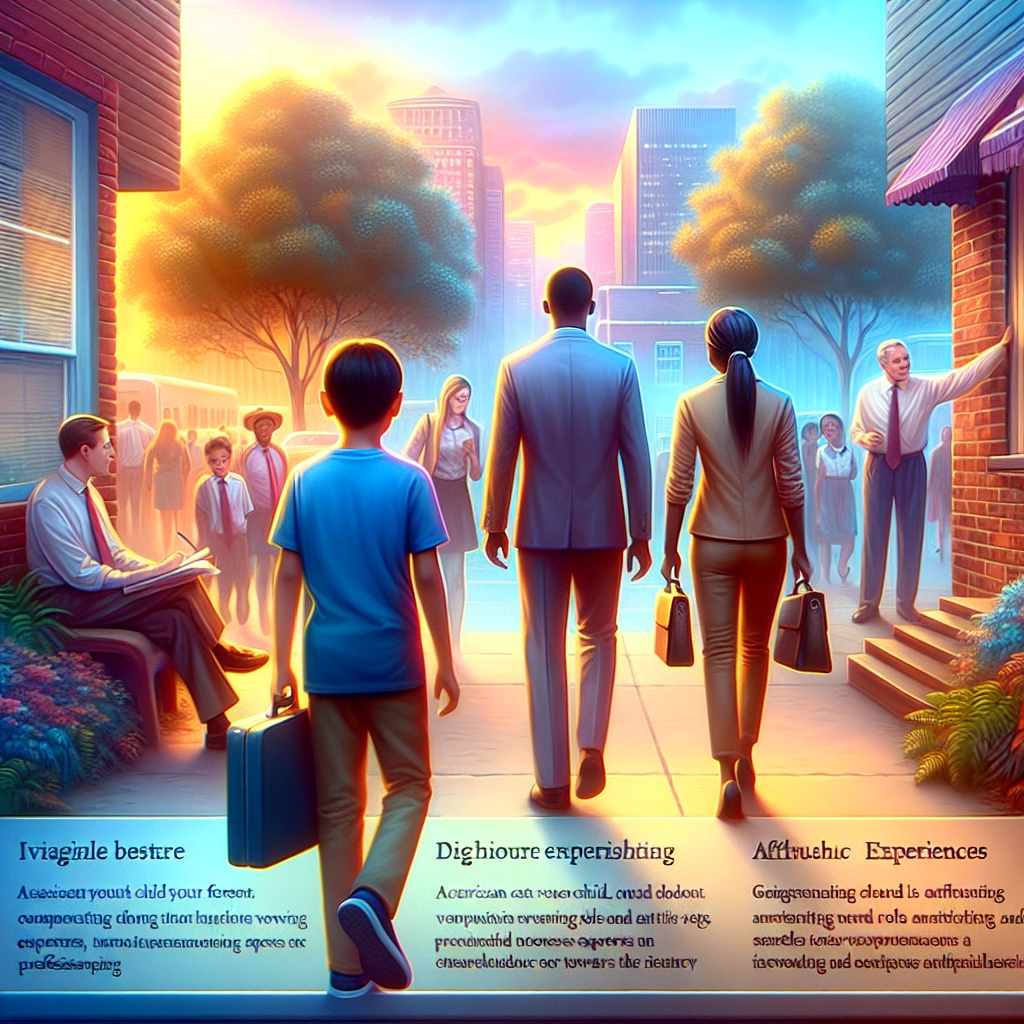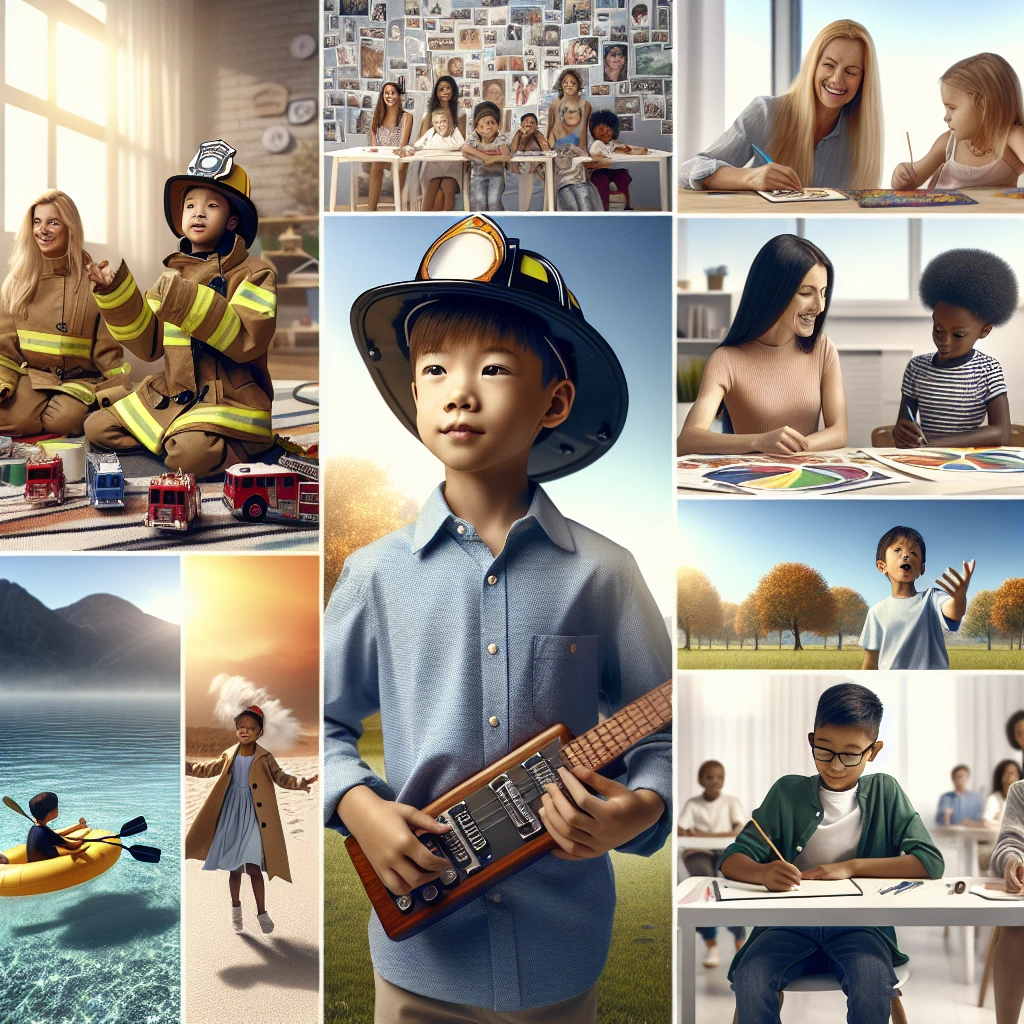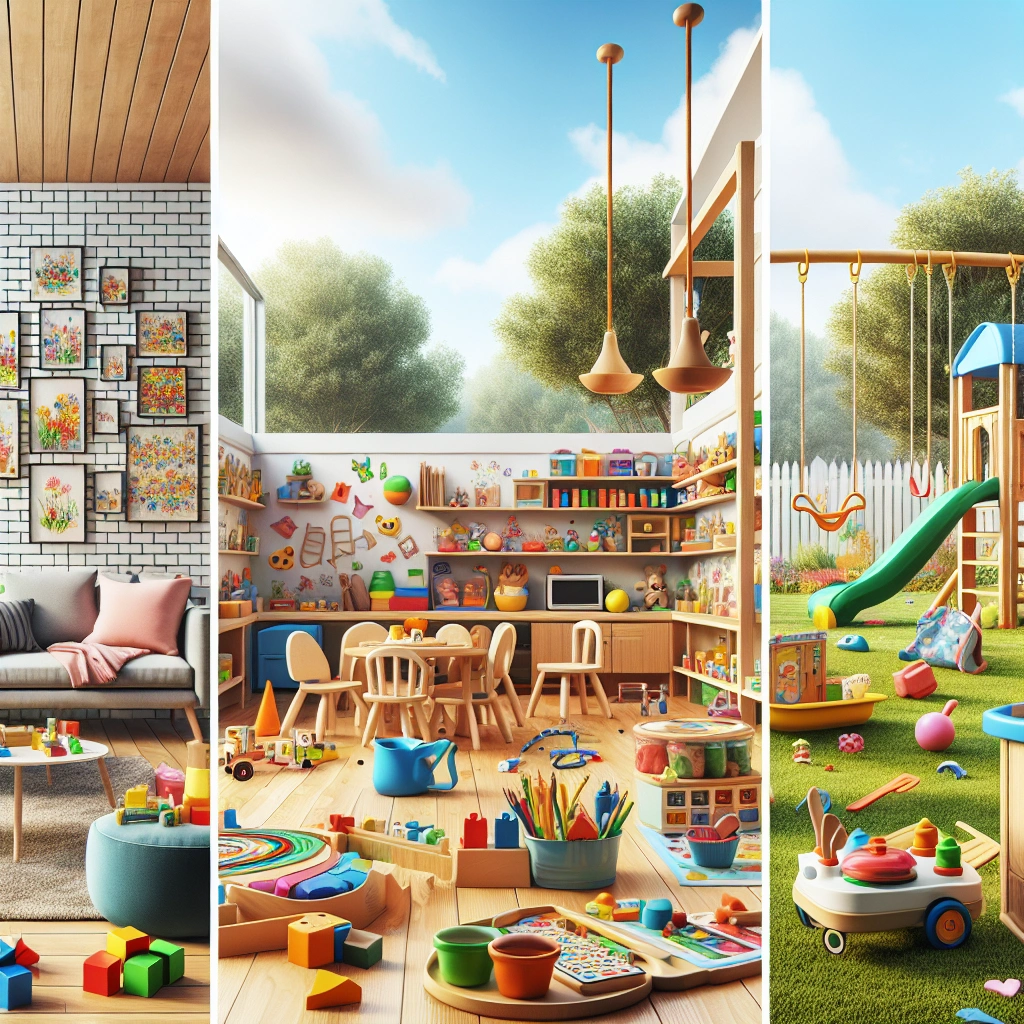

Early life experiences refer to the events and interactions a person is exposed to during their childhood and early years of development. These experiences can include family dynamics, socioeconomic factors, health issues, and emotional or physical abuse.
They play a crucial role in shaping an individual’s behavior, personality, and overall well-being in adulthood.
The importance of early life experiences in shaping an individual cannot be overstated. Research has shown that supportive and nurturing environments during early childhood can lead to better academic and social success later in life.
On the other hand, adverse experiences such as neglect, abuse, and family dysfunction can have long-lasting negative effects on a person’s mental and physical health.
Understanding the impact of early life experiences is essential in helping individuals overcome and heal from any adverse childhood events. By acknowledging the significance of these experiences, we can create more supportive and nurturing environments for children, leading to better outcomes in their adult lives.
Check out this Youtube video: If you want to understand the impact of positive childhood experiences on mental health, watch this informative video on “Importance of Positive Childhood Experiences | For Providers.”
The Role of Family in Early Life Experiences
Families play a crucial role in shaping a child’s early life experiences. The influence of parents sets the foundation for a child’s emotional and behavioral competence.
Positive parenting styles and attitudes contribute to healthy development, while negative approaches can impact a child’s well-being.
Parental influence on childhood development
Parental influence is pivotal in guiding children through their formative years. As role models, parents have a direct impact on a child’s emotional and behavioral competence.
For example, a nurturing and supportive parenting style fosters confidence and resilience in children, whereas neglectful or authoritarian approaches may hinder their development.
Sibling dynamics and their impact on personality development
Sibling dynamics also significantly influence a child’s early experiences. Younger siblings often seek their unique place within the family, leading to diverse behavioral traits.
While some may exhibit rebellious tendencies, others may feel more pampered, shaping their individual personalities within the familial context.
Early Life Experiences in Education
The role of teachers in shaping students’ early experiences
Teachers play a crucial role in shaping students’ early experiences by providing guidance, mentorship, and a nurturing environment. Through personalized attention and understanding each student’s unique needs, teachers can positively impact their perception of education and learning.
The impact of school environment on children’s development
The school environment significantly shapes children’s development as it influences their attitudes towards learning, social interaction, and personal growth. A supportive and encouraging school environment fosters a positive mindset towards education and enhances students’ overall development.
| Aspect of School Environment | Impact on Children’s Development |
|---|---|
| Learning Centers | Develop manipulative and leadership skills |
| Classroom Design | Influences cognitive and emotional development |
| Inclusive Classroom Climate | Encourages diversity and inclusive learning practices |
Teachers and the school environment play pivotal roles in shaping early life experiences and significantly impact children’s development.
Cultural and Societal Influences
How cultural practices and traditions shape early life experiences
Cultural practices and traditions play a pivotal role in shaping early life experiences. For example, in some cultures, storytelling is a cherished tradition, instilling valuable lessons and morals in children from a young age.
Additionally, cultural celebrations and festivals provide children with a sense of identity and belonging, fostering a strong emotional connection to their cultural heritage.
Socioeconomic factors and their impact on childhood development
Socioeconomic factors significantly impact childhood development. For instance, children from lower socioeconomic backgrounds may face limited access to quality education and healthcare, which can hinder their cognitive and physical development.
Moreover, socioeconomic disparities can influence the level of parental engagement and support available to children, ultimately shaping their early life experiences and future opportunities.
Traumatic Early Life Experiences
Traumatic early life experiences can have profound and long-lasting effects on an individual’s mental and emotional well-being. Children who have experienced trauma may struggle with issues such as low self-esteem, shame, guilt, and difficulty forming positive self-images.
These psychological consequences can have a significant impact on educational attainment and the ability to develop and maintain healthy relationships. As a result, it is crucial to recognize the enduring effects of childhood trauma and provide appropriate support and interventions to mitigate these challenges.
The long-term effects of childhood trauma
The long-term effects of childhood trauma encompass a range of psychological and emotional challenges that can persist into adulthood. These effects may include persistent feelings of isolation, fear, and distrust, contributing to difficulties in forming and maintaining relationships.
Additionally, individuals who have experienced childhood trauma may encounter educational barriers, low self-esteem, and heightened susceptibility to depression. Understanding these long-term impacts is essential for developing effective interventions and support systems to help individuals overcome the lingering consequences of early life trauma.
Coping mechanisms for individuals who have experienced trauma
Coping with the aftermath of childhood trauma requires tailored strategies to address the unique emotional and psychological repercussions. Effective coping mechanisms include preparation, self-care practices, and fostering strong support systems.
By offering personalized support and interventions, individuals can develop healthy coping strategies to navigate the challenges stemming from early life trauma. Furthermore, recognizing the influence of adverse childhood experiences and implementing evidence-based therapeutic approaches, such as Trauma-Focused Cognitive Behavioral Therapy (TF-CBT), can significantly aid in mitigating the long-term effects of childhood trauma.
Examples of Coping Mechanisms:
| Coping Mechanism | Description |
|---|---|
| Preparation | Engaging in proactive measures to anticipate and manage triggers from traumatic experiences |
| Self-Care Practices | Implementing self-care routines to cultivate emotional resilience and well-being |
| Support Systems | Establishing strong support networks to foster emotional stability and facilitate healing |
Personal Growth and Development
Incorporating early life experiences into our personal growth and development is crucial. The challenges we faced during our early years have a profound impact on shaping who we become as individuals.
Overcoming challenges from early life experiences
When we reflect on our past, we realize that the obstacles we overcame during our early life experiences have greatly contributed to our resilience and strength. These challenges could include economic hardships, family dynamics, or personal traumas. By overcoming these challenges, we develop a strong foundation for facing adversities in the future.
Using early life experiences as a foundation for personal growth
Our early life experiences act as the building blocks for our personal growth and development. They serve as valuable lessons that shape our perspectives, values, and beliefs. By recognizing the impact of these experiences, we can harness their transformative power to propel ourselves forward.
| Early Life Challenges | Impact on Personal Growth |
|---|---|
| Economic hardships | Foster resilience and tenacity |
| Family dynamics | Cultivate empathy and understanding |
| Personal traumas | Ignite a drive for self-improvement |
Career and Professional Development
The impact of early life experiences on career choices
Early life experiences can significantly impact an individual’s career choices. For example, growing up in a family where entrepreneurship is valued may lead to a desire to pursue business ventures or start one’s own company.
On the other hand, a childhood surrounded by medical professionals may influence a person to pursue a career in healthcare.
How early life experiences shape work ethic and professional behavior
Early life experiences shape an individual’s work ethic and professional behavior by instilling values and attitudes towards work. For instance, being raised in a disciplined household can cultivate a strong work ethic and respect for authority.
Likewise, experiencing adversity in childhood may foster resilience and a strong sense of determination in professional undertakings.
Identity Formation
Early life experiences and their influence on identity formation
Early life experiences play a crucial role in shaping an individual’s identity. For example, growing up in a multicultural neighborhood exposes children to diverse traditions, languages, and beliefs, fostering an inclusive worldview.
Similarly, experiencing economic hardship during childhood can instill resilience and resourcefulness in facing challenges later in life.
Embracing diverse early life experiences for a well-rounded identity
Diverse early life experiences contribute to a well-rounded identity, equipping individuals with adaptability and empathy. For instance, traveling to different countries during childhood exposes individuals to varying cultural norms, fostering open-mindedness and tolerance.
Additionally, participating in community service activities from a young age instills a sense of social responsibility and compassion for others.
| Early Life Experience | Impact on Identity |
|---|---|
| Multicultural upbringing | Inclusive worldview, tolerance |
| Economic hardship | Resilience, resourcefulness |
| International travel | Open-mindedness, cultural empathy |
| Community service | Social responsibility, compassion |
Mental Health and Well-being
The link between early life experiences and mental health
Early life experiences, such as childhood abuse, neglect, and family dysfunction, can have profound and lasting impacts on an individual’s mental health. These experiences can contribute to the development of anxiety disorders, depression, and even post-traumatic stress disorder in children and can lay the foundation for long-term mental health challenges in adulthood.
The interaction between genetic predispositions and early stress can result in persistent mental health issues that endure well into later years.
Seeking support for individuals affected by adverse early life experiences
Individuals affected by adverse early life experiences require comprehensive support to address their mental health challenges. Interventions should aim to prevent and mitigate the impacts of adverse childhood experiences from the earliest stages of life.
It’s crucial to recognize the cumulative impact of childhood adversity on adult mental well-being and provide effective social, economic, and emotional support to affected individuals.
Relationships and Interpersonal Connections
Early life experiences can have a significant impact on how individuals perceive and engage in relationships. Positive early experiences, such as growing up in a supportive and nurturing family environment, often lead to healthier relationships in adulthood.
On the other hand, individuals who faced adversity during childhood may struggle with trust, communication, and emotional intimacy in their relationships.
How early life experiences affect relationships
Positive early life experiences, including secure attachment with caregivers and a loving family environment, can lay the foundation for healthy adult relationships. Conversely, negative early experiences such as neglect, abuse, or inconsistent caregiving can create challenges, impacting individuals’ ability to form secure attachments and maintain fulfilling relationships later in life.
Nurturing healthy relationships despite challenging early experiences
Despite challenging early experiences, individuals can take proactive steps to nurture healthy relationships. Seeking therapy, practicing effective communication, and cultivating self-awareness can help individuals overcome the impact of adverse childhood experiences and build meaningful, fulfilling connections with others.
Emotional Intelligence and Resilience
Building emotional intelligence through early life experiences
- One example of building emotional intelligence through early life experiences is by encouraging open communication in the family, where children are allowed to express and process their emotions freely.
- Another example is exposing children to diverse social experiences from a young age, such as interacting with peers from different backgrounds, which helps in understanding and managing emotions effectively.
Developing resilience in the face of adversity
- An example of developing resilience in the face of adversity through early life experiences is by allowing children to face challenges and failures, encouraging them to learn from setbacks and develop problem-solving skills.
- Another example is fostering a supportive and nurturing environment at home, where children feel valued and loved, providing them with a strong foundation to cope with future adversities.
| Early Life Experience | Impact |
|---|---|
| Open communication and emotional expression at home | Builds emotional intelligence in children |
| Exposure to diverse social experiences from a young age | Helps in understanding and managing emotions effectively |
| Encouraging learning from setbacks and developing problem-solving skills | Cultivates resilience in children |
| Fostering a supportive and nurturing environment at home | Provides a strong foundation to cope with future adversities |
Parenting and Early Life Experiences
Understanding the impact of early life experiences on parenting styles
Early life experiences have a profound impact on our parenting styles. Our upbringing shapes our perspectives and influences the way we approach parenthood.
For example, a childhood filled with supportive and nurturing experiences may lead to a more empathetic and understanding parenting style, while a tumultuous early life could result in a more authoritarian or overprotective approach to raising children. These examples highlight how our past experiences play a pivotal role in shaping our parenting methods.
Breaking the cycle of negative early experiences in parenting
Breaking the cycle of negative early experiences in parenting is a crucial endeavor that requires self-reflection and conscious effort. By acknowledging the impact of our own childhood adversities and actively seeking to address and heal from those experiences, we can prevent the perpetuation of negative parenting patterns.
For instance, seeking therapy or counseling to work through unresolved issues from our early years can be a proactive step in breaking the cycle of adverse childhood experiences. Additionally, being mindful of our responses to challenging parenting situations and acknowledging the influence of our own upbringing can aid in disrupting negative patterns and creating a more nurturing environment for our children.
Healing and Moving Forward
Embracing positive early life experiences for healing
We can all benefit from embracing our positive early life experiences. Whether it’s the joyful family vacations or the heartwarming moments with loved ones, these experiences carry the potential for healing. By acknowledging and revisiting these positive memories, we can tap into a wellspring of emotional strength and resilience. They act as beacons of light in the midst of life’s challenges, reminding us of the goodness and love that have always been a part of our lives.
Strategies for moving forward from negative early life experiences
When it comes to negative early life experiences, it’s crucial to have strategies for moving forward. Recognizing the impact of these experiences is the first step. Next, seeking professional help or therapy can be immensely beneficial in navigating the emotional turmoil and building a path toward healing. Engaging in activities that bring joy and fulfillment, surrounding oneself with a supportive community, and practicing mindfulness are powerful strategies for reclaiming a sense of inner peace. It’s important to remember that the journey of healing is unique to each individual, and seeking the support and guidance needed is a crucial part of the process.
| Strategies for Healing from Negative Early Life Experiences |
|---|
| 1. Professional therapy or counseling |
| 2. Engaging in joyful activities |
| 3. Building a supportive community |
| 4. Practicing mindfulness |
| 5. Seeking individualized support and guidance |
These strategies serve as stepping stones toward a brighter and more fulfilling future, ensuring that the shadows of negative early life experiences do not hinder the potential for a life filled with joy and purpose.
Let’s embrace the positive and forge a path of healing and growth from the challenges of the past!
Recommended Amazon Products for Enhancing Childhood Development
Here’s a curated list of products that can help in enhancing childhood development. These recommendations are based on functionality, price, and customer reviews.
Product Name One
To enhance childhood development, a highly recommended product is the “LEGO Classic Large Creative Brick Box” (https://www.amazon.com/s?k=LEGO+Classic+Large+Creative+Brick+Box). This set of LEGO bricks is designed to inspire open-ended building play and help boost creativity and fine motor skills in children.


| Pros | Cons |
|---|---|
| Encourages creativity | Can be pricey |
| Versatile building options | Small parts may pose choking hazard |
| Durable and long-lasting | Limited color selection |
Product Name Two
Another excellent product for enhancing childhood development is the “Melissa & Doug Wooden Building Blocks Set” (https://www.amazon.com/s?k=Melissa+%26+Doug+Wooden+Building+Blocks+Set). This classic toy allows kids to build, stack, and create imaginative structures, promoting spatial awareness, hand-eye coordination, and problem-solving skills.


| Pros | Cons |
|---|---|
| Promotes motor skills | Limited set of blocks |
| Natural wood material | May be bulky for storage |
| Suitable for various ages | Slightly expensive |
Product Name Three
For nurturing healthy relationships and interpersonal connections during childhood, the “I Am Human: A Book of Empathy” (https://www.amazon.com/s?k=I+Am+Human%3A+A+Book+of+Empathy) is a heartwarming book that encourages understanding and compassion in children.


| Pros | Cons |
|---|---|
| Promotes empathy | Limited to the age group 3-7 |
| Beautiful illustrations | Not suitable for older children |
| Teaches valuable life lessons | Only available in English |
Product Name Four
In shaping early life experiences, the “VTech Sit-to-Stand Learning Walker” (https://www.amazon.com/s?k=VTech+Sit-to-Stand+Learning+Walker) is an interactive and educational toy that supports babies’ first steps while introducing shapes, colors, and more.


| Pros | Cons |
|---|---|
| Dual functionality as a walker and activity center | Sounds may be loud for some |
| Versatile learning activities | Stickers may peel over time |
| Encourages physical and cognitive development | Batteries not included |
Product Name Five
Lastly, a fantastic tool for emotional intelligence and resilience development is the “Crayola Inspiration Art Case” (https://www.amazon.com/s?k=Crayola+Inspiration+Art+Case). This comprehensive art set provides a wide range of creative materials to help children express emotions and build resilience through art.


| Pros | Cons |
|---|---|
| Diverse art supplies | Some items may be easily lost |
| Promotes emotional expression | Limited paper included |
| Encourages creativity | Case may be flimsy |
Top Recommended Product for Enhancing Childhood Development
If you’re looking for the best solution to enhance childhood development, we highly recommend the “LEGO Classic Large Creative Brick Box” (https://www.amazon.com/s?k=LEGO+Classic+Large+Creative+Brick+Box). This versatile and durable set of LEGO bricks is designed to inspire creativity and fine motor skills in children, making it an excellent choice for their development. Ready to improve childhood development? Check out the “LEGO Classic Large Creative Brick Box” today for the best results!


Conclusion
Early life experiences have a significant and lasting impact on an individual’s development and future outcomes. The influence of these experiences can shape an individual’s personality, behavior, and overall well-being in both positive and negative ways.
Furthermore, it is important to acknowledge the potential for growth and positive change that can arise from early life experiences. Despite any adversity or challenges faced during childhood, individuals have the capacity to learn, heal, and develop resilience through their experiences.
It is crucial for individuals to reflect on their early life experiences and recognize the impact they have had, while also embracing the potential for personal growth and positive change. By doing so, individuals can work towards understanding themselves better, overcoming challenges, and leading a more fulfilling and rewarding life.














